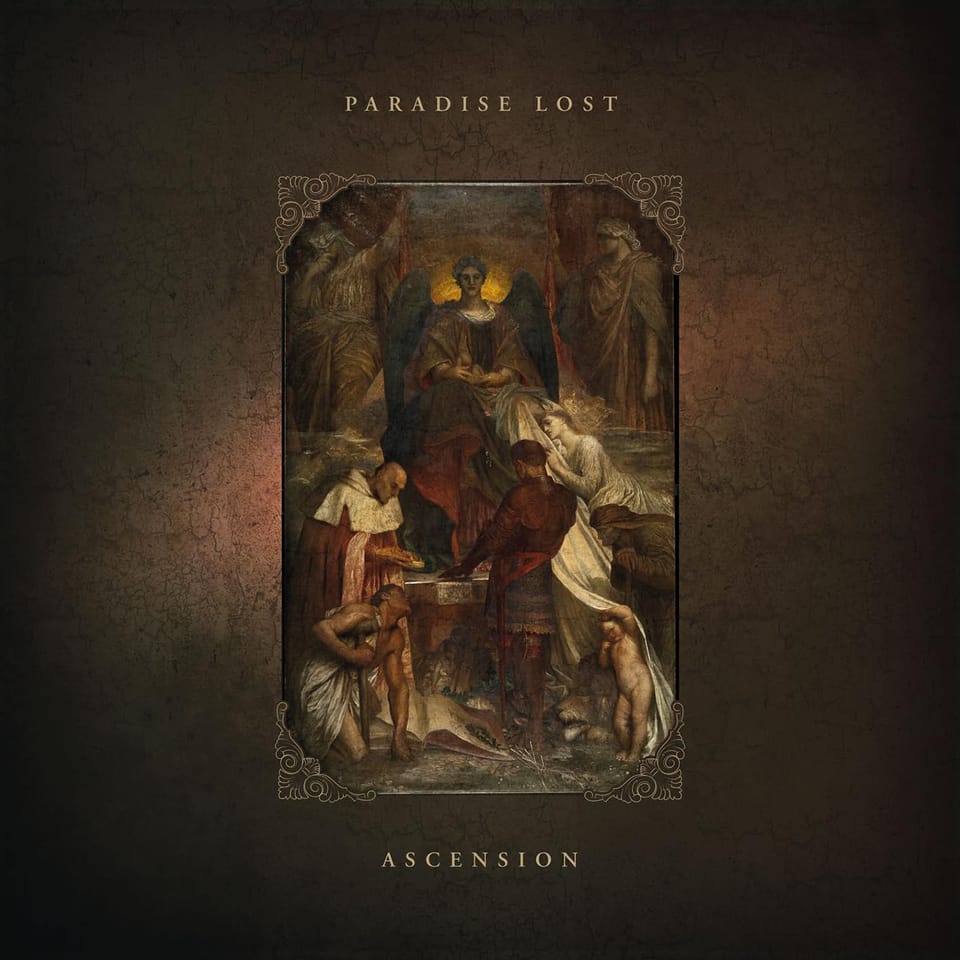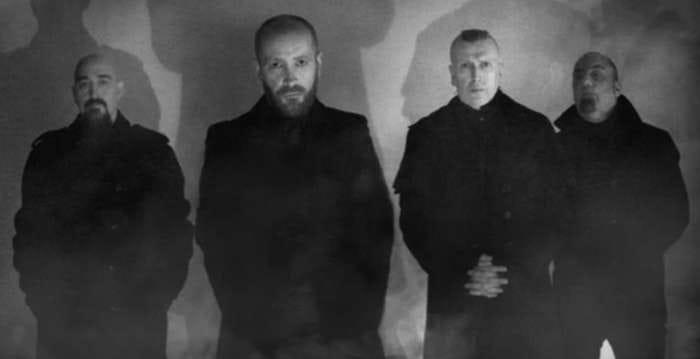Paradise Lost – Ascension: Gloom With Grace

Released on September 19, 2025, Paradise Lost’s seventeenth studio album — Ascension — doesn’t simply pick up where Obsidian left off. It arrives as a bold reaffirmation: this is a band still capable of sculpting atmosphere and weight after nearly four decades.
After a five‑year studio hiatus, Paradise Lost return not just to reclaim their throne, but to redraw its shape. Rather than resting on their legacy, they push forward — deeper into gloom, sharper in execution, more unflinching in emotion. Ascension is not a nostalgia trip. It’s a statement.
A New Chapter: Gravitas, Depth, and Gothic Resolve
Where earlier albums leaned on texture and melody, Ascension leans into contrast — between crushing doom and soaring gothic lines, between guttural voice and mournful clean singing, between rumbling riffs and open space. The song structures are not wildly flashy, but they’re deliberate, often shifting moods within individual tracks with a sense of purpose. This isn’t just a collection of songs; it’s a measured journey through darkness and reflection.
The production—handled by Gregor Mackintosh and mixed/mastered by Lawrence Mackrory—gives the album clarity and scope without sacrificing rawness. It’s not slick or overpolished; guitars have bite, bass has weight, drums hit with both restraint and authority. The mix allows the gloom to breathe rather than suffocate.
Monumental Tracks and the Album’s Pulse
From the opening salvo “Serpent on the Cross,” Ascension wastes no time establishing its tone. The slow-building intro gives way to intense doom riffing and anguished vocals — a reminder that even after decades, Paradise Lost can still deliver visceral impact.
“Tyrants Serenade” balances crushing heaviness with melancholic melody, and clean / harsh vocals intertwine in a way that feels both timeless and immediate. “Silence Like the Grave,” the lead single, captures the album’s dual nature: memorable and gloomy, accessible yet full of shadow.
Later cuts like “Salvation” allow the band to stretch out, letting Gregor’s lead work linger, while “Savage Days” and “Deceivers” sharpen the focus with more direct, muscular songwriting. And when “The Precipice” closes the album, it does so not with resolution, but with tension — a fitting denouement to a record built on unease and introspection.
The Band: Wiser, Sharper, Together
Nick Holmes brings both grit and weariness here. His harsher vocals still carry edge, but his cleans feel more weathered, more thoughtful, more lived-in. The interplay between voice styles has never been more effective.
Greg Mackintosh continues to be the architect of the band’s sound — his riffs are both heavy and melodic, his leads poignant without being showy. Aaron Aedy, Steve Edmondson (on bass), and drummer Guido Montanarini (in his final full album with the band) all lock in tightly. The rhythm section holds up the heavier moments while giving space for the gothic undercurrents to breathe.
Production and Legacy: A Gothic Metal Statement
The sonic palette of Ascension is dramatic without being overly grandiose. Spaciousness is used as a weapon, the heavier sections hit all the harder against silence and shadow. It’s not a “wall of sound” album — it’s more refined, more focused. The balance is impressive: you hear the muscle, but also the sorrow behind it.
In the broader scheme of Paradise Lost’s catalog, Ascension feels like a distillation rather than a reinvention. It draws from their doom roots, their gothic peak periods, and their atmospheric modern work, but it doesn’t feel like mere pastiche. It is its own beast.
Final Verdict: 9.0 / 10
Ascension is a powerful return. It may not break radically new ground for Paradise Lost, but it doesn’t need to — what it does instead is reaffirm their mastery. This is an album for listeners willing to lean into shadow, to let the heaviness settle, and to be haunted by melody. It’s elegant, it’s mournful, it’s potent.
For longtime fans, Ascension will feel like a worthy next chapter. For newcomers, it’s a compelling introduction to a band that still moves with purpose, still carries weight, and still speaks from the darkness with clarity.


Comments ()